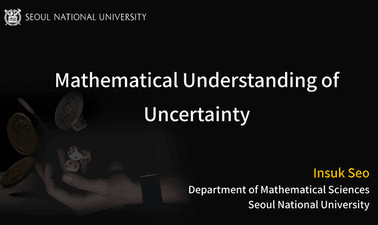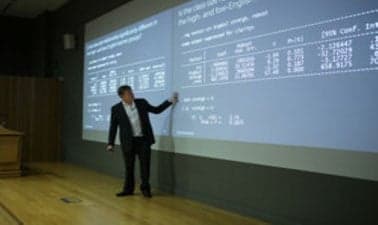PurdueX: Probability: Basic Concepts & Discrete Random Variables

- Duration
- 6 weeks
- Price Value
- $ 49
- Difficulty Level
- Introductory


This course covers foundational knowledge in probability necessary for statistical theory and mathematical modeling, tailored for emerging fields in information science. It introduces basic probability concepts and rules, important distribution models with discrete random variables, and practical application of these models in data science.
Prospective students should have a background in calculus, including double integrals, and a basic understanding of combinatorics. A tutorial during the first lesson of the course will provide a refresher on combinatorics.
This course is suitable for individuals aiming to build a career in data science, actuarial science, or those interested in enhancing their skills in statistical theory and mathematical modeling.
The skills acquired from this course can be applied in various analytical and data-intensive roles. Understanding probability and statistical models enables professionals to make informed decisions based on data analysis, predict future trends, and solve complex problems in different sectors such as finance, healthcare, logistics, and more.
"I thought the course was very good. Especially useful were the large number of practice problems. Bravo!" – Previous Student.
Explore more courses to enhance your cloud computing and Kubernetes skills.

This lecture series discusses how the concept of probability can be used to handle, control, and exploit uncertainty in the real-world. It is an undergraduate-level lecture series on probability, but is entirely different from the usual courses on probability theory. The lectures cover the basics of probability theory including the relevant mathematics, but instead of focusing on mathematics, the lectures explain how probability theory can help understand real-world uncertainty using various examples. The examples are used to describe how uncertainty can be exploited to implement modern randomized algorithms such as Markov chain Monte Carlo and deep learning.

The first in a series of four courses which help you to master statistics fundamentals and build your quantitative skillset for progression in high-growth careers, or to use as step towards further study at undergraduate level.